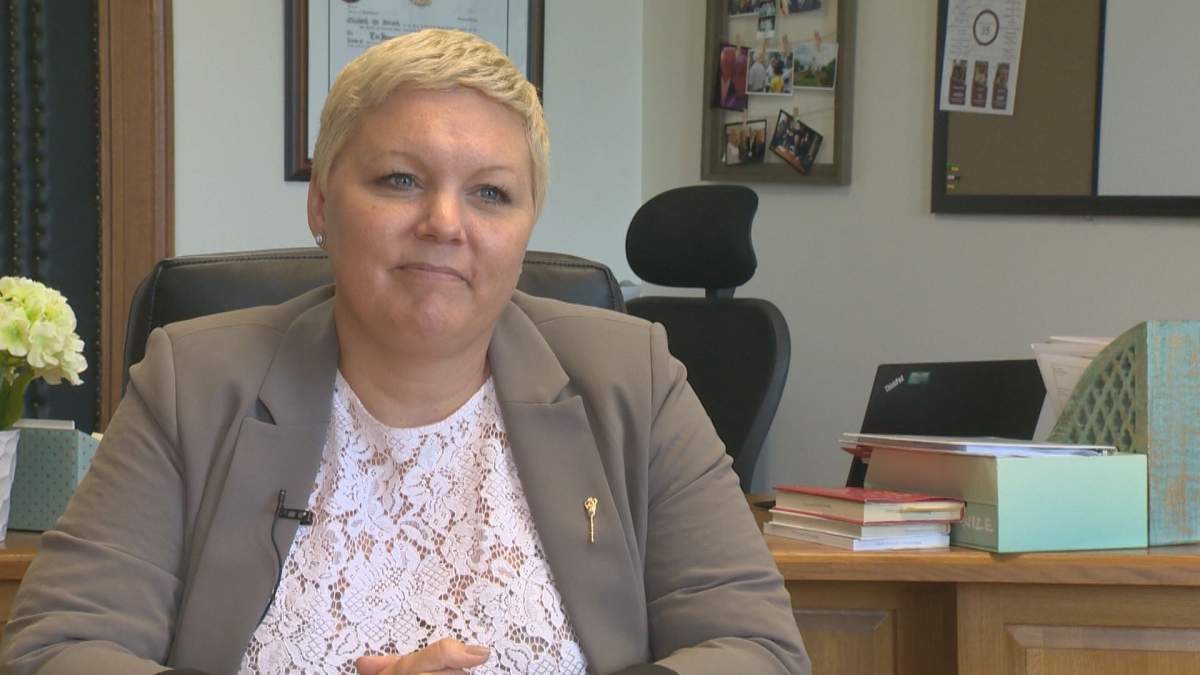Saskatchewan has long had the dubious distinction of being a national leader in rates of sexual assault and domestic violence.

As rates remain high, Status of Women Minister Tina Beaudry-Mellor is looking to shift the conversation on potential remedies to these issues.
“We have been talking about women as victims in domestic violence and sexual assault cases for a very long time and yet we’re not seeing those numbers go down,” Beaudry-Mellor said.
“So maybe we need to start having a bit of a different conversation, which is ‘where are the economic development opportunities for women?’”
In recent years, the most visible work from Saskatchewan’s Status of Women Office has involved hosting events such as International Women’s Day. In what’s being characterized as a refresh year, the office will be launching a pilot program.
They will see what’s known as a gender-based analysis be applied to the new Saskatchewan Technological Start-up Incentive (STSI). While policy is developed around the program, gender-sensitive questions will be asked and taken into greater consideration.
“So having a gender-based analysis lens on it is important I think in order to address the entrepreneurship gap, but also so we can demonstrate the value of using some of these tools if there is a value,” Beaudry-Mellor explained.

Get breaking National news
“I’m not 100 per cent sold on this being in the panacea of all things, but it’s a good opportunity for us to test it.”
READ MORE: Opposition calls for Sask. sexual assault strategy, government open to idea
This is a comment opposition critic Danielle Chartier finds curious.
“All gender-based analysis is looking at is how policy impacts people differently. So I’m not quite sure what she needs to be convinced of in that,” Chartier said.
“In other places that use it, it makes more effective policy for half the population.”
Overall, Chartier said she is pleased to see more money, $256,000 being allocated to the Status of Women office, and is all for expanding economic opportunities for women.
However, she is concerned that about half that budget goes to paying the office’s executive director salary.
READ MORE: University of Saskatchewan reviewing athlete recruitment process after Gavlas firing
Adding to this, Chartier said more still needs to be done, outside of broadening economic opportunities, to address issues like affordable child care and gender-based violence.
Regina YWCA CEO Melissa Coomber-Bendtsen echoed the need to address gender-based violence.
“When we look at that as a plague on our province we’re not going to get far on opportunities or empowerment for women when we still have some really critical changes in the way we look at women, the way we perceive women, how we work with women who are vulnerable unless we look at those things,” she said.
READ MORE: Regina local pubs and bars to boast coasters to prevent sexual assault in Sask.
The Status of Women office has consulted the YWCA in the formation of this refresh year. Coomber-Bendtsen sees potential in bringing a gender-based lens to the workings of government.
“Tech start-ups are a way in which this can have a practical implication when you look at something with a gendered lens when you ask the question,” Coomber-Bendtsen said. “And if we’re not asking the question then there isn’t clarity around the inequalities that exist or the marginalization that exists in our system.”
Addressing systemic issues require more than just government policy, a point made by both Beaudry-Mellor and Chartier.
Coomber-Bendtsen said while responsive perspective from government is an element, it is not the whole picture.
“Both from a response perspective, but also from a development of healthy masculinity and respect culture and consent then we’re not going to get very far,” she said.
The Status of Women office also advises other branches of government through an inter-ministerial committee. Beaudry-Mellor said the office has also submitted numerous recommendations to the Domestic Violence Death Review panel. That report is scheduled to be released May 24.








Comments